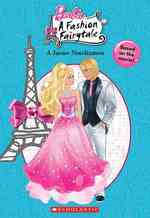- ホーム
- > 洋書
- > 英文書
- > Philosophy
Full Description
Uses the concept of religiosity to challenge traditional views of Nietzsche and Zhuangzi as nihilistic and anti-religious.
In this book, author Ge Ling Shang provides a systematic comparison of original texts by Zhuangzi (fourth century BCE) and Nietzsche (1846-1900), under the rubric of religiosity, to challenge those who have customarily relegated both thinkers to relativism, nihilism, escapism, pessimism, or anti-religion. Shang closely examines Zhuangzi's and Nietzsche's respective critiques of metaphysics, morals, language, knowledge, and humanity in general and proposes a conception of the philosophical outlooks of Zhuangzi and Nietzsche as complementary. In the creative and vital spirit of Nietzsche, as in the tranquil and inward spirit of Zhuangzi, Shang argues that a surprisingly similar vision and aspiration toward human liberation and freedom exists-one in which spiritual transformation is possible by religiously affirming life in this world as sacred and divine.
Contents
Acknowledgments
1. Introduction
Reinterpreting Zhuangzi and Nietzsche
Perspective on Comparative Philosophy
Method and Plan
2. Zhuangzi's Dao: A Way of Freedom
The Concept of Dao in Early Chinese History
Wuwu: A Deconstruction of Metaphysical Perspectives of Dao
Dao Throughs as One
Wuzhi: Equalizing Opinions is the Way of True Knowledge
Language without Words: Beyond Language and Silence
Wuwei or Non-doing: Against the Tradition of Morality
Xiao Yao You: A Spiritual Freedom Realized in this World
3. Nietzsche's Philosophy of Life Affirmation
Nietzsche's Mission: Revaluation of All Values
Genealogy: A New Way of Philosophizing
Truth, Knowledge, and Morals
Metaphysics as a Symptom of Human Decadence
Truths as Lies and Will to Truth as Ascetic Ideal
Language and Truth
Does Nietzsche Renounce the Existence of Truth?
A Genealogical Critique of Morality
Overcoming Metaphysics
The World of Appearances and the Will to Power
Religiosity: Liberation as Life Affirmation
4. An Interplay between Zhuangzi and Nietzsche
Goblet Words and Dionysian Dithyramb
Truth, Knowledge, and Interpretation
Revaluation and Devaluation: Beyond Good and Evil
Nature as Primary Unity
True Person and Übermensch: Living in the World
Ziran and Freedom: Life Affirmation
Further Reflections on Differences Between Zhuangzi and Nietzsche
5. Converging New Worlds: Zhuangzi, Nietzsche, and Contemporary Philosophy
Affirmation after Deconstruction: Zhuangzi and Nietzsche Challenge Postmodern Solutions
The Liberation of Thought: Zhuangzi and Nietzsche in Contemporary China
Philosophical Religiosity
Notes
Selected References
Index







